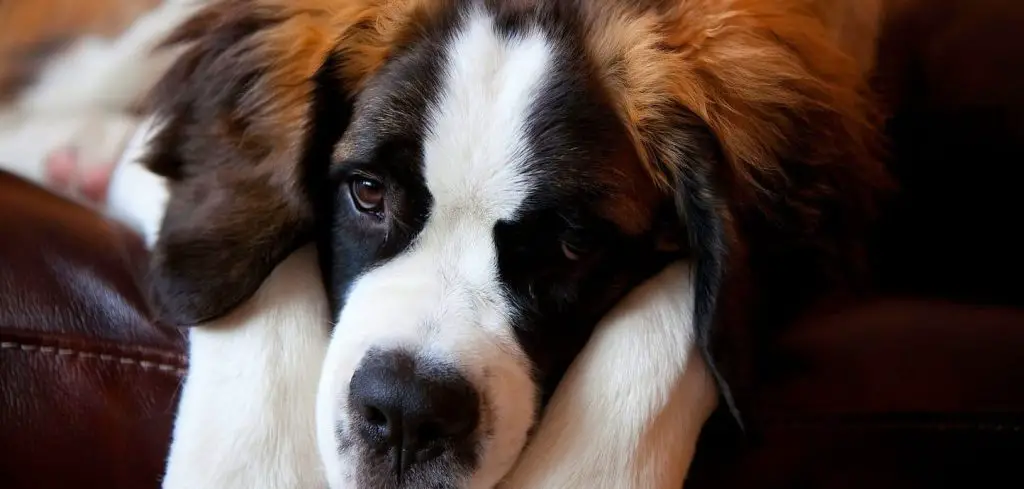When a dog passes mucus in their stool after sedation, it can be alarming for dog owners. While sedation is often necessary for medical procedures, side effects on the digestive system may occur, leading to unusual stool changes.
We outline the common causes of mucus in a dog’s poop after sedation, what you can do at home, and when to seek veterinary help.
Dog Mucus Poop After Sedation — Why It Happens
Mucus in a dog’s poop after sedation usually happens due to changes in gut motility, stress, and irritation of the digestive tract. The sedatives and anesthesia used during medical procedures can slow down the intestines, alter normal bowel movements, and lead to mucus production.
Also, stress from the veterinary visit, fasting before sedation, and recovery afterward can all contribute.
In some cases, the mucus could also point to an unrelated health condition that surfaced around the same time.

Dog Mucus Poop After Sedation: Common Causes
Gastrointestinal Irritation from Sedation
Sedative medications can affect the lining of the gastrointestinal tract. Some drugs may temporarily slow digestion or cause mild irritation in the intestines.
When the lining becomes inflamed, it produces excess mucus as a protective mechanism. Owners may notice soft or slimy stools for a day or two after the procedure.
Read more: Mucus in Dog Poop from Stress (Why stress affects the gut)
Stress and Anxiety
The process of visiting the vet, being separated from family, and undergoing sedation can place significant stress on a dog.
Stress impacts gut function by altering motility and increasing mucus production. This is why some dogs experience diarrhea or mucus-streaked stools after stressful events.
Fasting Before the Procedure
Dogs are typically fasted before sedation to prevent vomiting during anesthesia. The empty stomach and intestinal changes from fasting can upset the balance of the digestive system.
Afterward, when food is reintroduced, the gut may produce excess mucus as it readjusts to digestion.
Post-Sedation Inflammation or Colitis
In some dogs, sedation can trigger mild colitis, which is inflammation of the colon. Colitis often causes mucus in the stool, sometimes accompanied by straining or soft feces.
The inflammation may resolve within a few days, but if it persists, it could require veterinary care.
Pre-existing Digestive Issues
Sometimes, mucus in stool after sedation is not directly caused by the drugs but instead reveals an underlying digestive issue.
Conditions like inflammatory bowel disease (IBD), food intolerance, or parasites may become more noticeable during times of stress or recovery. If the mucus persists, an existing condition could be at play.
Pancreatitis Triggered by Sedation Stress
In rare cases, the stress of sedation and fasting may trigger pancreatitis in susceptible dogs. Pancreatitis can lead to digestive upset, diarrhea, and mucus in the stool.
Dogs with pancreatitis may also show signs like vomiting, abdominal pain, and loss of appetite. This is a more serious condition that requires prompt veterinary treatment.
What to Do If Your Dog Has Mucus Poop After Sedation
If your dog passes mucus in their stool after sedation but seems otherwise normal, monitoring at home is often appropriate.
Provide fresh water at all times to help with hydration. Offer bland food such as boiled chicken and rice for a couple of days to soothe the digestive system.
Keep their meals small and easy to digest while their stomach recovers. Make sure they rest in a quiet environment and avoid adding stress during recovery.
If their stool gradually returns to normal, it was likely a temporary reaction to the sedation process.
When to Call or Visit Your Vet
Contact your veterinarian if your dog’s mucus-filled poop continues for more than two to three days after sedation.
Immediate veterinary attention is needed if you notice blood in the stool, repeated diarrhea, or signs of abdominal pain.
Lethargy, vomiting, refusal to eat, or worsening symptoms also require a prompt exam.
If your dog has a history of digestive disease or pancreatitis, you should reach out to your vet sooner rather than later. Any sudden decline after sedation should always be taken seriously.
Read more: Mucus in Dog Poop After Diarrhea (Here’s Why)
Key Takeaway
Mucus in dog poop after sedation can result from stress, fasting, digestive irritation, or temporary inflammation of the intestines.
In most cases, it is short-lived and improves within a couple of days. However, persistent symptoms or additional signs like vomiting and lethargy should not be ignored.
By keeping a close eye on your dog’s recovery and seeking veterinary help when needed, you can ensure they return to comfort and health quickly.
